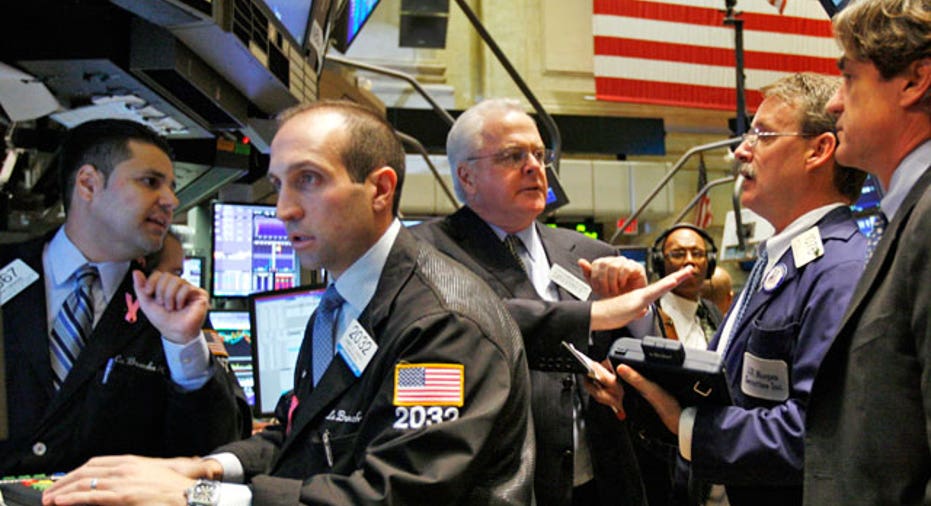Stocks Slump Amid China Concerns

FOX Business: The Power to Prosper
Concerns that China's once powerful economic growth engine may be sputtering weighed on traders' confidence on Tuesday, pushing stocks solidly into the red.
Today's Markets
As of 2:45 p.m. ET, the Dow Jones Industrial Average fell 56.6 points, or 0.43%, to 13183, the S&P 500 dipped 4.3 points, or 0.3%, to 1406 and the Nasdaq Composite slipped 7.1 points, or 0.23%, to 3071.
Australian BHP Billiton (NYSE:BHP) sees demand for iron ore, which is part of the production process for steel, "flattening" to single-digit growth, according to Reuters, citing the company's CEO. The statement from the world's biggest miner speaks to broader growth concerns for the country, which has seen its furious economic expansion slow down recently.
The news hurt big U.S. industrial names. Notably, Caterpillar (NYSE:CAT) fell more than 2%, shaving 21 points from the Dow's overall performance. The heavy machinery giant saw its world retail machine sales jump 21% for the three rolling months ended in February, with sales in North America leaping 39%.
Aluminum-maker Alcoa (NYSE:AA) and integrated energy behemoth Chevron (NYSE:CVX) also sustained heavy selling amid demand concerns. Commodities were under pressure as well, with the dollar strengthening. The greenback recently rose 0.3% against a basket of six world currencies tracked by the dollar index.
The benchmark crude oil contract traded in New York fell $2.48, or 2.3%, to $105.61 a barrel. Wholesale RBOB gasoline slipped 0.14% to $3.363 a gallon.
In metals, gold tumbled $20.30, or 1.2%, to $1,647 a troy ounce. Copper, an industrial metal, slumped 2% to $3.83 a pound.
China was also forced to hike gasoline and diesel prices, which, unlike in the U.S., are centrally controlled. A gallon of 90-octane now costs a record $4.42 a gallon, the Wall Street Journal reported. As has been seen in many nations, this could take a toll on consumer confidence in the world's No. 2 economy.
On the U.S. front, permits to build new homes, which are seen as a forward-looking indicator, jumped 5.1% to a rate of 717,000 units, much better than the 690,000 economists expected. Permits are now at their highest level since October 2008. Housing starts fell 1.1% in February to a 698,000-unit rate, missing economists' estimates of a 700,000-unit rate.
While there have been some signs of recovery, the housing market has been one of the weakest sectors of the overall U.S. economy. Tight lending conditions, stubbornly high supply and still relatively weak demand have all played a role in slowing down the comeback in that realm.
Elsewhere, Treasuries advanced mildly on the heels of steep losses on Monday and last week. The yield on the 10-year note fell 0.033-percentage point to 2.352%.
Corporate News
Tiffany & Co (NYSE:TIF) posted fourth-quarter profits of $1.39 a share, three cents weaker than Wall Street expected. However, the high-end jeweler said it expects its revenue to jump 10% for the full fiscal year.
Foreign Markets
European blue chips dropped 1%, the English FTSE 100 slid 1.1% to 5898 and the German DAX sold off by 1.3% to 7062.
In Asia, the Japanese Nikkei 225 ticked higher by 0.12% to 10142 and the Chinese Hang Seng sunk 1.1% to 20888.



















